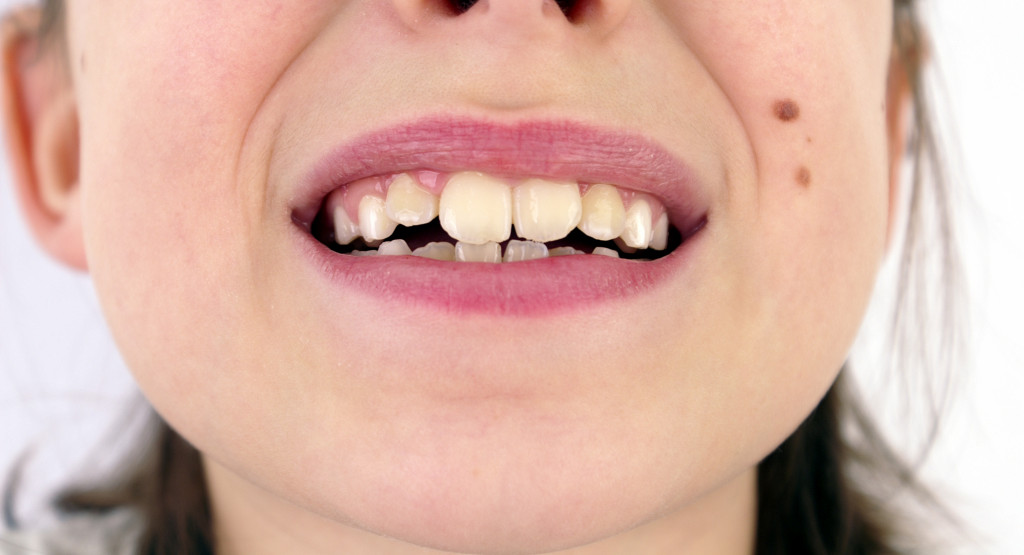Do you have an overbite? If so, do not worry. You are definitely not alone! Many people think that having an overbite means that they simply need to train their jaws to behave differently. However, this is not always the case at all.
An overbite occurs when your upper teeth extend past your lower teeth, making it look like you are sticking out your tongue all the time. This can be extremely embarrassing and uncomfortable.
Not only can it affect how others view you, but if left untreated, it can lead to several dental problems, which may require complicated surgery to fix the issue permanently.

What Causes an Overbite?
The first step is to understand what causes an overbite in the first place. Several factors contribute towards developing one. Most of them are things that can be changed or controlled, whether it is in the process of growing up or later on when they have already developed.
The main culprits for overbites are childhood habits.
1. Using a sippy cup too often can contribute to it. Children typically drink from these cups using a vacuum seal which pulls their upper teeth forward and the lower jaw back. It does not help that this is how they learn to drink at an early age, so the habit sticks with them as they get older.
2. The position of your tongue during sleep has been proven to cause overbites as well. If you have an overbite, the chances are that you stick your tongue out when sleeping or talk with your mouth open, leading to excessive wear on your front teeth over time if left untreated.
3. A lack of chewing correctly may also cause overbites in children. If they are not practicing chewing properly, this means that their teeth are not being aligned the right way, which can lead to overbites.
4. Tongue thrusting is another way children learn to drink and eat without really knowing what they are doing. This contributes to overbites because the tongue actively pushes forward against the palate, making both sets of teeth outwards towards the lips.
5. Finally, genetics also plays a role in whether you develop an overbite or not. Some people were simply predisposed to developing them since birth, while others may need to work on changing certain habits for them to go away
How Are Overbites Treated?
If you already have an overbite, do not worry! There are plenty of treatments available to fix it so that your teeth are no longer misaligned. Luckily for most people, their symptoms can disappear once they hit the teen years (between 14 and 16), which means they will not have to wait too long at all before being treated for this issue.
However, if it is still present well into adulthood, there are options open to them. Usually, the treatment method selected by a dentist will depend on how severe your case is.
Orthodontics is one of the most common treatments used to fix an overbite. If you or your child have an overbite, then it is highly recommended that you speak to a pediatric dentist because they will be able to discuss orthodontic options with you in more detail.
- A Herbst orthodontic appliance may be used, which is custom molded specifically for each patient so that it can fit their teeth perfectly, allowing them to bite properly without causing any discomfort at all.
- Headgear is another option that some dentists will recommend to help achieve the desired result. Headgear manufactured by a pediatric dentist is usually worn for up to 20 hours per day and can help fix an overbite in a relatively short amount of time.
- Chewing on the other side of your mouth may be another solution your dentist will talk about if you or your child has been diagnosed with an overbite. It does not always work, but sometimes it helps to remove pressure from the misaligned teeth, so they begin to realign as you chew naturally.
What Are the Risks?
An overbite often leads to problems down the road, which means that it is essential for both children and adults who have this issue to do something about it as soon as possible. Some potential issues that you could develop if your overbite is not treated include:
- Difficulty eating a regular diet
- Speech problems where your words may contain lisping or mumbling sounds
- Pain in the jaw, teeth, and muscles
- Over time, an overbite can lead to self-esteem issues which usually only worsen as children grow into teenagers and adults.
For this reason, it is highly recommended that you speak with a dentist about your options as soon as possible, so they can help begin the process of treating your overbite.

